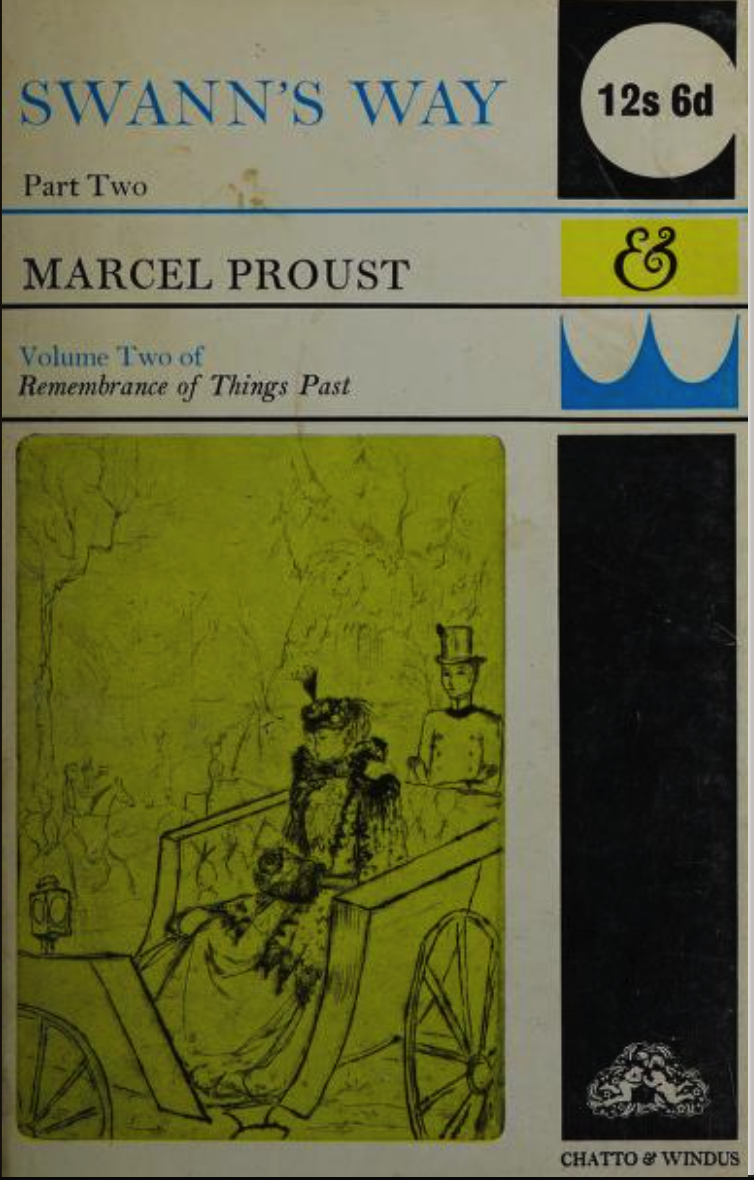
Email all work for the course to me at [email protected]
You will not receive better than a "C" in the course if you do not attend and participate in class. So even if all your written work is "A" level (or "B") but you have not participated in class discussion, you will receive a "C" for the course.
I will ask you to keep a journal of your listening / readings of Swann's Way. About 300 words are due each Monday and Wedneday by 5:00 p.m. Email all work for the course to me at [email protected] Your journal must be based on close listening and close reading. I want you to learn how to write your entries in a Proustian style. As you write about the novel, imagine you are writing an autobiography and a novel write about your memories of reading in the style of the novel. When you finish, you will have fragments of your search for lost time reading Proust's novel.
Proust divides Swann's Way into four sections, Combray I, Combray II, Swann in Love, and Place Names: Places
Montcrieff changed that to Overture, Combray, Swann in Love, and Place Names: Places
Jones on Audible.com divides Swann's Way up into eighteen chapters.
These are all macrostructures of the novel.
Genette divides the novel up into macrostructures (three sections) and microstructures (seven beginnings)
Neither of the audiorecordings below is a match for Terence Jones' delivery. But both are useful points of comparison for their division of the novel into sections.
Recording of Swann's Way by Marcel Proust. (Translated by C. K. Scott-Moncrieff.)
Read in English by Denny Sayers and Andrew Coleman.
Recording of Swann's Way by Marcel Proust. (Translated by C. K. Scott-Moncrieff.)
Read in English by Expatriate
Readers may already have observed that
neither the title nor the subtitle of this book mentions what I
have just designated as its specific subject. The reason is neither
coyness nor deliberate inflation of the subject. The fact is that
quite often, and in a way that may exasperate some readers,
Proustian narrative will seem neglected in favor of more general
considerations; or, as they say nowadays, criticism will seem
pushed aside by "literary theory," and more precisely by the
theory of narrative or narratology. I could justify and clarify this
ambiguous situation in two very different ways. I could
either — as others have done elsewhere — frankly put the specific
subject at the service of the general aim, and critical analysis at
the service of theory: in that case the Recherche would be only a
pretext, a reservoir of examples, and a flow of illustration for a
narrative poetics in which the specific features of the Recherche
would vanish into the transcendence of "laws of the genre." Or,
on the other hand, I could subordinate poetics to criticism and
turn the concepts, classifications, and procedures proposed here
into so many ad hoc instruments exclusively intended to allow a
more precise description of Proustian narrative in its particular-
ity, the "theoretical" detour being imposed each time by the
requirements of methodological clarification.
I confess my reluctance — or my inability — to choose between
these two apparently incompatible systems of defense. It seems
to me impossible to treat the Recherche du temps perdu as a mere
example of what is supposedly narrative in general, or novelistic
narrative, or narrative in autobiographical form, or narrative of
God knows what other class, species, or variety. The specificity
of Proustian narrative taken as a whole is irreducible, and any
extrapolation would be a mistake in method; the Recherche illus-
trates only itself. But, on the other hand, that specificity is not
undecomposable, and each of its analyzable features lends itself to
some connection, comparison, or putting into perspective. Like
every work, like every organism, the Recherche is made up of
elements that are universal, or at least transindividual, which it
assembles into a specific synthesis, into a particular totality. To
analyze it is to go not from the general to the particular, but
indeed from the particular to the general: from that incompa-
rable being that is the Recherche to those extremely ordinary ele-
ments, figures, and techniques of general use and common cur-
rency that I call anachronies, the iterative, focalizations,
paralipses, and so on. What I propose here is essentially a
method of analysis; I must therefore recognize that by seeking
the specific I find the universal, and that by wishing to put
theory at the service of criticism I put criticism, against my will,
at the service of theory. This is the paradox of every poetics, and
doubtless of every other activity of knowledge as well: always
torn between those two unavoidable commonplaces — that there
are no objects except particular ones and no science except of the
general — but always finding comfort and something like attrac-
tion in this other, slightly less widespread truth, that the general
is at the heart of the particular, and therefore (contrary to the
common preconception) the knowable is at the heart of the
mysterious."
--Gérard Genette, "Preface," Narrative Discourse An Essay on Method Translated by Jane E. Lewin Foreword by Jonathan Culler (CORNELL UNIVERSITY PRESS), 22-23. facsimile / html
Jane Lewin cites this edition, same translation:
Remembrance of Things Past. Vol. 1 New York, Random House 1934
Remembrance of Things Past. Vol. 2 New York, Random House 1934
Swann's Way Modern Library 1928
SWANN'S WAY Translated by C. K. Scott Moncrieff and Terence Kilmartin Revised by D. Enright 1981
SWANN'S WAY Translated by C. K. Scott Moncrieff and Terence Kilmartin 1989
Swann's Way Vol. 1 1922 Epigraph from Shakespeare
Recording of Swann's Way by Marcel Proust. (Translated by C. K. Scott-Moncrieff.)
Read in English by Denny Sayers and Andrew Coleman.
Recording of Swann's Way by Marcel Proust. (Translated by C. K. Scott-Moncrieff.)
Read in English by Expatriate
TENTATIVE SCHEDULE (Please expect minor adjustments to be made in the schedule from time to time; all changes will be announced both in class and on the class email listserv.)
AUGUST 24: No Writing Off the Writer, However Bad
Sainte-Beuve championed a form of biographical criticism that saw texts as morally and intellectually inseparable from their writers. Here is Sainte-Beuve. . . . Sainte-Beuve . . . rank[ed] Bernard, Vinet, Molé, Verdelin, Meilhan, and Azyr among the great writers of his time, . . . dismiss[ed] Baudelaire and Balzac as vulgar and Hugo as overly political. History has not been on Sainte-Beuve’s side, and neither was Proust. A la recherche, the novel that grew out of [Contre Sainte-Beuve] this early piece of literary criticism, persuasively refutes Sainte-Beuve’s method by bringing into contrast the sometimes sordid lives of its characters and the emotional nuance of their experiences of the world.
Marcel Proust, Contre Saint-Beuve
"The Recherche, more than all other works, must not be considered closed. . . .
If the Recherche was complete once, it is not so anymore, and the way in which it
admitted the extraordinary later expansion perhaps proves that
that temporary completion was, like all completion, only a retro-
spective illusion. We must restore this work to its sense of un-
fulfillment, to the shiver of the indefinite, to the breath of the
imperfect. The Recherche is not a closed object: it is not an object.
Here again, no doubt Proust's (involuntary) practice goes be-
yond his theory and his plan — let us say at least that it corre-
sponds better to our desire."
--Gérard Genette, Narrative Discourse An Essay on Method Translated by Jane E. Lewin Foreword by Jonathan Culler (CORNELL UNIVERSITY PRESS), 21; 268. facsimile / html
Due tomorrow AUGUST 25 by 5:00 p.m: Write two (DQs) on and. Send your DQs and three shots in one word document as an attachment to me at [email protected]. Don't forget to put your name in the upper left corner. That is all you need to put there: just your name. :) Email all work for the course to me at [email protected]
AUGUST 26 Proust and the Imperfect: "For a long time, I used to go to bed early."
REQUIRED LISTENING (Listen to the first two chapters of the original Montcrieff translation read by John Rowe on Audible.com)
Marcel Proust, The Overture, Swann's Way (Montcrieff invented the "Overture," combining the opening about Marcel's insomnia and the famous madeleine episode.)


You can follow along here:
Marcel Proust, In Search of Lost Time Complete Volumes (the original Montcrieff translation)
Jane Lewin cites this edition, same translation:
Remembrance of Things Past. Vol. 1 New York, Random House 1934
Remembrance of Things Past. Vol. 2 New York, Random House 1934
Due Monday August 30 by 5:00 p.m: Email all work for the course to me at[email protected]
AUGUST 31 The narrator's memories of life at Combray, the most notable being his insomnia;
a madeleine dipped in a cup of tea and involuntary memory
REQUIRED LISTENING (Listen to chapters 3-4 of the original Montcrieff translation read by John Rowe)

Marcel Proust, Combray, Swann's Way (the original Montcrieff translation: Susanna Lee, Ed. Norton Critical Editions, 2013)
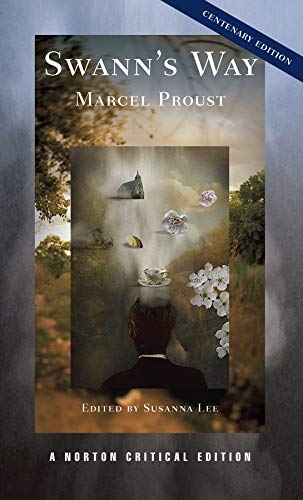
Due Wednesday SEPTEMBER 1 by 5:00 p.m: Write two Discussion Questions (DQs) on and. Send your DQs and three shots in one word document as an attachment to me at [email protected]. Don't forget to put your name in the upper left corner. That is all you need to put there: just your name. :) Email all work for the course to me at [email protected]
Once you have a partner to co-lead class discussion, create a google doc for your notes and share it with me by 5:00 p.m. the day before you are co-leading so I can add my thoughts. Make sure you give me permission to edit the document.
SEPTEMBER 7
REQUIRED LISTENING: (Listen to chapters 5-6 of the original Montcrieff translation read by John Rowe)

REQUIRED READING:
Gérard Genette on Legrandin and the palimpsest: "Proust and Indirect Language," in Figures of Literary Discourse, pp. 280-85 Translator Alan Sheridan (See the geological strata metaphor for memory)
Recommended Reading:

Marcel Proust, The Lemoine Affair. Read the linked pdf and read for free pp. 9-22 online here with "look inside." (TRANSLATOR CHARLOTTE MANDELL)
I will no longer post due dates for work due Mondays and Wednesdays by 5:00 p.m.
First Paper Due by 11:59 . Topics to be announced. Email all work for the course to me at [email protected]
SEPTEMBER 9 PROUST IN TRANSLATION
REQUIRED LISTENING: (Listen to chapters 7-8 of the original Montcrieff translation read by John Rowe)

Marcel Proust, Swann in Love, Swann's Way: In Search of Lost Time, Vol. 1 (Penguin, 2004) Lydia Davis (Translator )

SEPTEMBER 14
REQUIRED LISTENING: (Listen to chapters 9-10 of the original Montcrieff translation read by John Rowe)

Marcel Proust, Swann in Love, Swann's Way
Swann in Love (Oxford World's Classics, 2018) Bryan Nelson (Translator)

SEPTEMBER 16
REQUIRED LISTENING:(Listen to chapters 11-12 of the original Montcrieff translation read by John Rowe)
Marcel Proust, Swann in Love, Swann's Way
SEPTEMBER 21
REQUIRED LISTENING: (Listen to chapters 13-14 of the original Montcrieff translation read by John Rowe)

REQUIRED READING:
Proust's synopsis; Terence Kilmartin's synopsis; Patrick Alexander Synopsis; The Essential Remembrance of Things Past (abridged audio-recording with musical selections)
SEPTEMBER 23 Good Signs
REQUIRED LISTENING: (Listen to chapters 15-16 of the original Montcrieff translation read by John Rowe)

REQUIRED READING:
Gérard Genette, "The Proustian Paratext," SubStance, Vol. 17, No. 2, Issue 56: Reading In and Around (1988), pp. 63-77
SEPTEMBER 28 C'est fini!
REQUIRED LISTENING: (Listen to chapters 17-18 of the original Montcrieff translation read by John Rowe)

SEPTEMBER 30
REQUIRED READING:
Gérard Genette, "Proust's Palimpsest," in Figures of Literary Discourse, pp. 203-28 Translator Alan Sheridan

REQUIRED READING:
Gérard Genette, "Proust and Metynomy," Swann's Way Norton Edition
OCTOBER 5
REQUIRED READING:
Maurice Blanchot, "The Experience of Proust," in The Book to Come, pp. 11-24
Jozef Czapski, Lost Time: Lectures on Proust in a Soviet Prison Camp (New York Review Books Classics 2018)

OCTOBER 7
Swann in Love
Directed by Volker Schlöndorff • 1984 • France
Starring Jeremy Irons, Ornella Muti, Alain Delon
Volker Schlöndorff’s sumptuous adaptation of the first volume of Marcel Proust’s “In Search of Lost Time” stars Jeremy Irons as the appropriately named Charles Swann, a beautiful bachelor, majestic in manner, but prone to foul displays of emotion. He swims in the best circles of 1890s Paris, until a destructive love for a seductive courtesan named Odette (Ornella Muti) leads him astray.
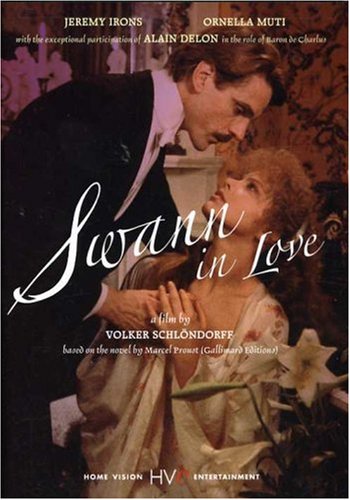
Swann in Love (dir. Volker Schlöndorff, 1984)
Not Swann's Way | by Roger Shattuck | The New York Review of Books
OCTOBER 12 Embedded Narratives: Selections from The Arabian Nights
OCTOBER 14 Selections from The Arabian Nights
Recommended Reading:
Tzvetan Todorov, "Male Narratives: The 1,001 Nights" in The Poetics of Prose French original
OCTOBER 19
REQUIRED LISTENING: (the original Montcrieff translation)
Marcel Proust, The Prisoner: In Search of Lost Time, Volume 5 (Penguin, 2019) Carol Clark (Translator)

OCTOBER 21
Marcel Proust, The Prisoner REQUIRED LISTENING: (the original Montcrieff translation)
Gérard Genette, Narrative Discourse An Essay on Method Translated by Jane E. Lewin Foreword by Jonathan Culler (CORNELL UNIVERSITY PRESS) facsimile / html
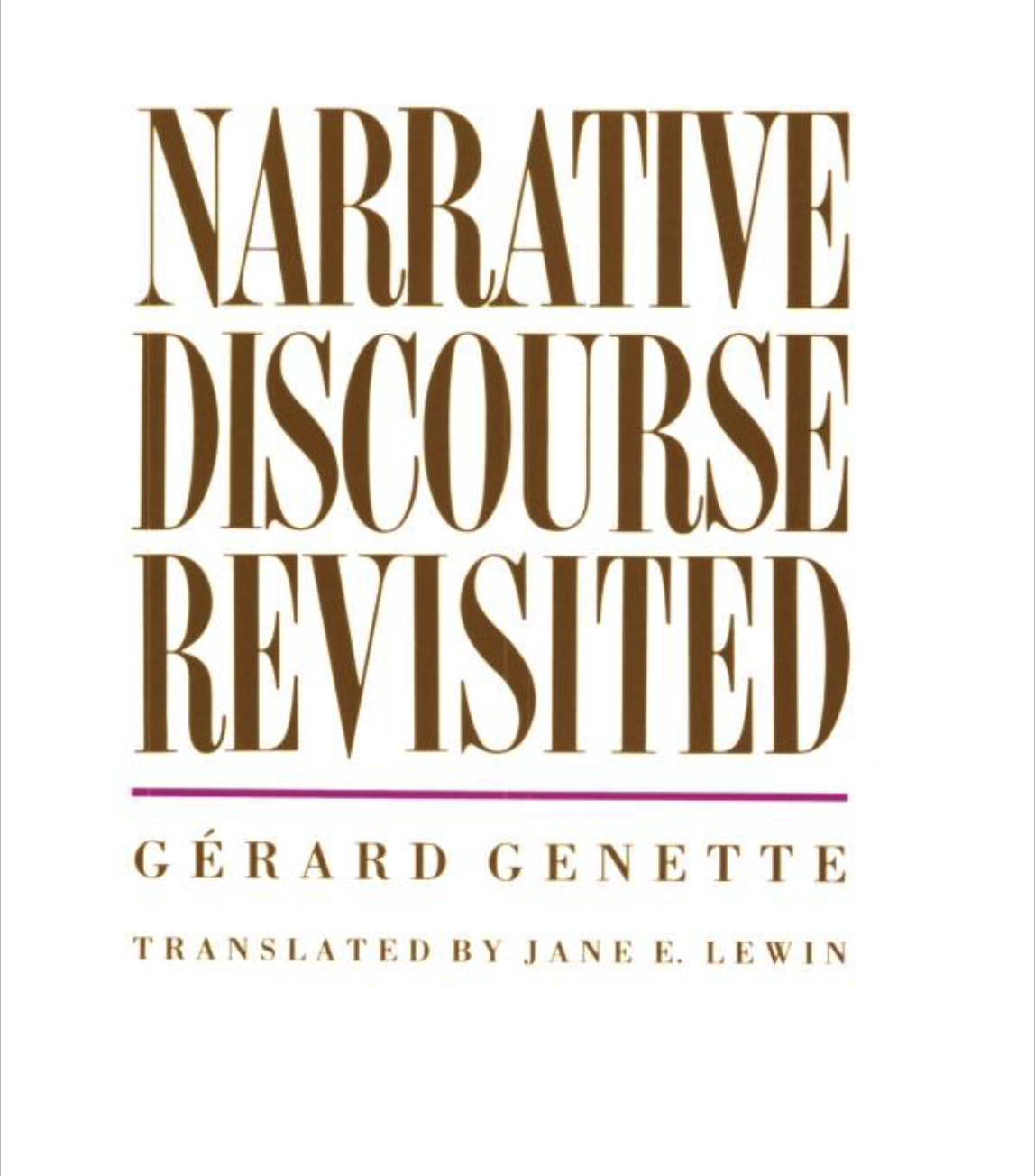
OCTOBER 26
Marcel Proust, The Prisoner REQUIRED LISTENING: (the original Montcrieff translation read by John Rowe)
Recommended Viewing:
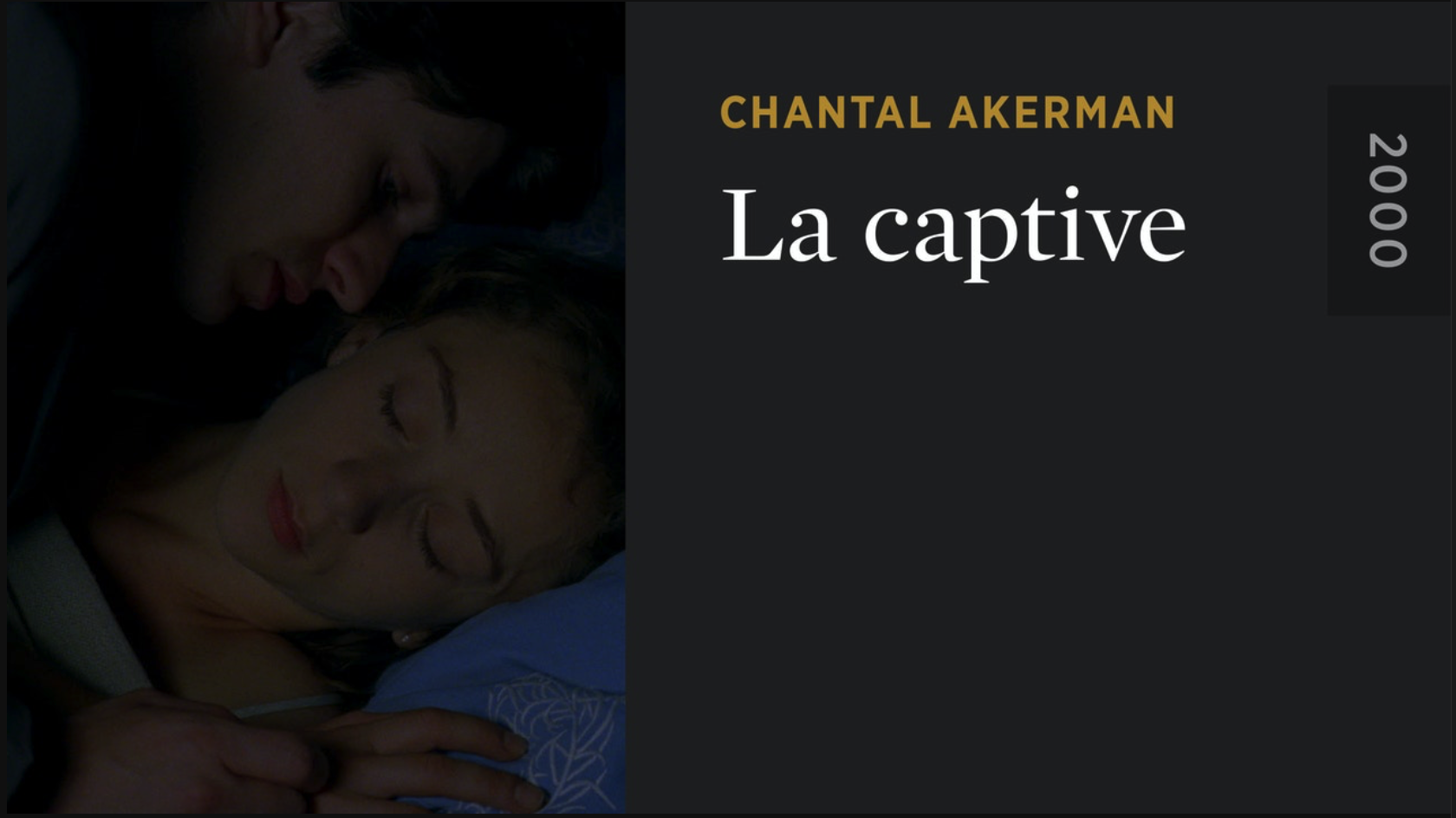
"Directed by Chantal Akerman • 2000 • Belgium, France
Starring Sylvie Testud, Stanislas Merhar, Olivia Bonamy
Adapting the fifth volume of Marcel Proust’s “In Search of Lost Time,” Chantal Akerman transforms the material into a mesmerizing study of voyeurism, control, and sexual obsession centered on the relationship between a possessive young man (Stanislas Merhar) and his passive lover (Sylvie Testud), whom he is convinced is carrying on a lesbian affair. As he relentlessly stalks her every move, the two find themselves imprisoned in a cycle of jealousy, erotic longing, and self-destruction."
Chantal Akerman, La Captive (2000)
OCTOBER 28
Marcel Proust, The Prisoner REQUIRED LISTENING: (the original Montcrieff translation)
Anne Carson's dramatic reading of her "essay" 'The Albertine Workout' (Aug 2, 2014 in the LRB; published by 2014 by New Directions)
The Albertine Workout Pamphlet (2014) includes numerous appendices placed after the poem, appendices that Carson does not include in her reading and that is is not included nor mentioned in the LRB publication of 2014.
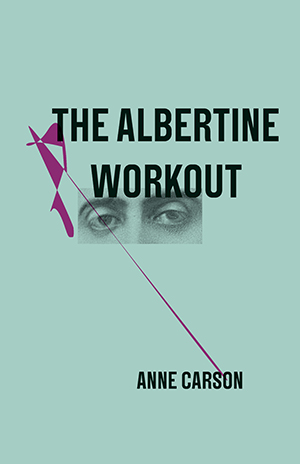
The "Transposition Theory" (and Its Rebuttal)
Justin O'Brien, "Albertine the Ambiguous: Notes on Proust's Transposition of Sexes." PMLA , Vol. 64, No. 5 (Dec., 1949), pp. 933-952
Harry Levin and Justin O'Brien, "Proust, Gide, and the Sexes." PMLA Vol. 65, No. 4 (June, 1950), pp. 648-653
NOVEMBER 2 Embedded Narratives (II) The Saragossa Manuscript (dir. Wojciech Has,1965) Part One

NOVEMBER 4 The Saragossa Manuscript (dir. Wojciech Has,1965) Part Two

NOVEMBER 9
REQUIRED LISTENING: (the original Montcrieff translation)
Marcel Proust, Finding Time Again translator Ian Patterson
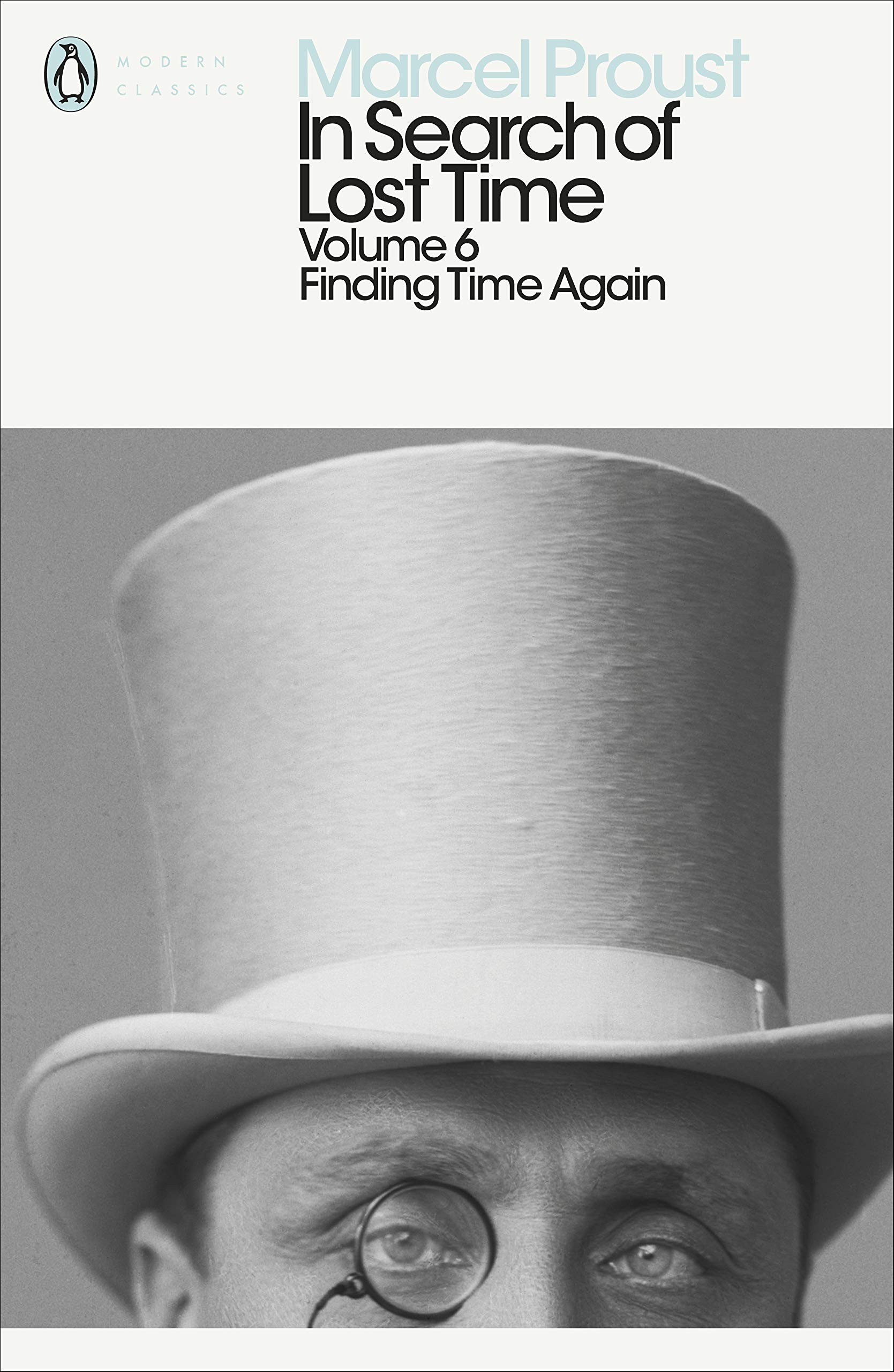
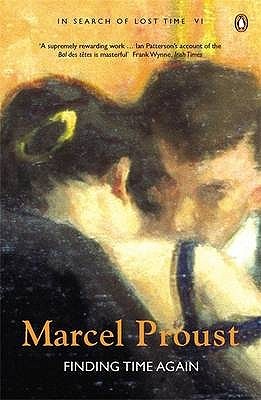
Second Paper Due by 11:59 . Topics to be announced. Email all work for the course to me at [email protected]
NOVEMBER 11 Time Regained (dir. Raul Ruiz, 1999)
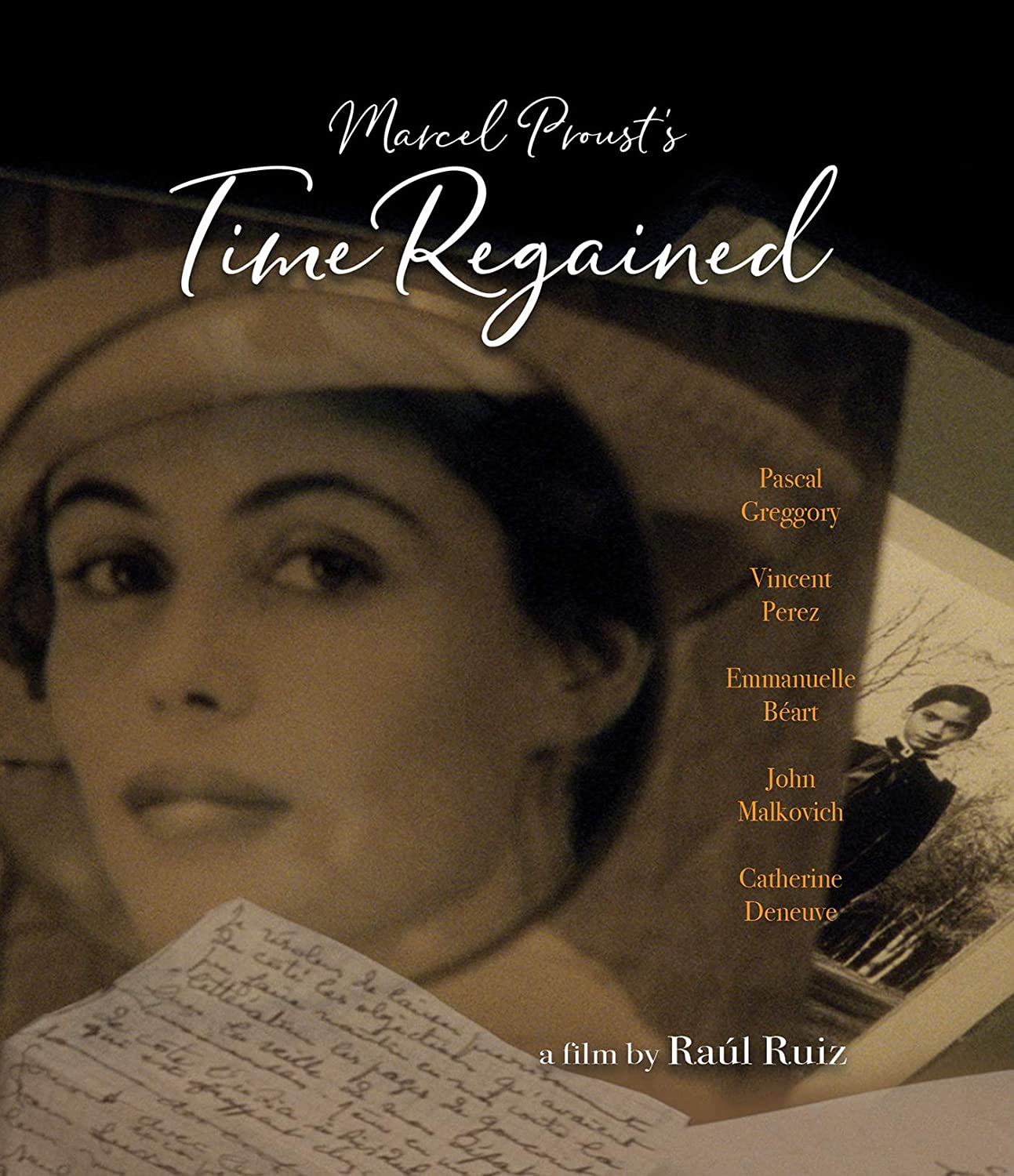
NOVEMBER 16
REQUIRED LISTENING: (the original Montcrieff translation)
Marcel Proust, Finding Time Again translator Ian Patterson


NOVEMBER 18 Gérard Genette, Narrative Discourse An Essay on Method Translated by Jane E. Lewin Foreword by Jonathan Culler (CORNELL UNIVERSITY PRESS) facsimile / html
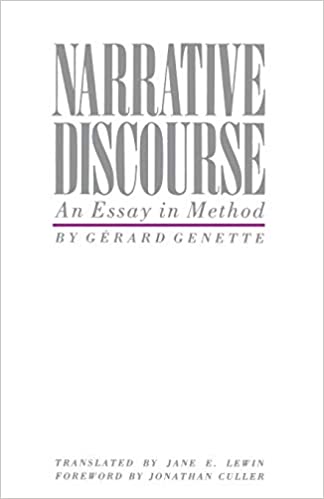
NOVEMBER 23

NOVEMBER 25
THANKSGIVING HOLIDAY
NOVEMBER 30 Postponement
Gérard Genette, Narrative Discourse An Essay on Method Translated by Jane E. Lewin Foreword by Jonathan Culler (CORNELL UNIVERSITY PRESS) facsimile / html
DECEMBER 2
REQUIRED LISTENING: (the original Montcrieff translation)
Marcel Proust, Finding Time Again translator Ian Patterson


Third Paper Due Decembre 9 by 11:59 p.m. Topics to be announced. Email all work for the course to me at [email protected]
DECEMBER 7
REQUIRED LISTENING: (the original Montcrieff translation)
Marcel Proust, Finding Time Again translator Ian Patterson


Nothing Below Is Required for this course.


READING RESOURCES:
The particular characteristic of the exordium of the Recherche is obviously its multi-
plication of memory-created instances, and consequently its
multiplication of beginnings, among which each (except the last)
can seem afterward like an introductory prologue. First begin-
ning (absolute beginning): "For a long time I used to go to bed
early ..." Second beginning (ostensible beginning of the au-
tobiography), five pages later: "At Combray, as every afternoon
ended ..." Third beginning (appearance on stage of involun-
tary memory), twenty-six pages later: "And so it was that, for a
long time afterwards, when I lay awake at night and revived old
memories of Combray ..." Fourth beginning (resumption after
the madeleine, real beginning of the autobiography), four pages
later: "Combray at a distance, from a twenty-mile radius ..."
Fifth beginning, one hundred and seven pages later: ab ovo,
Swann in love (an exemplary novella if there ever was one, ar-
chetype of all the Proustian loves), conjoint (and hidden) births
of Marcel and Gilberte ("We will confess," Stendhal would say
here, "that, following the example of many serious authors, we
have begun the story of our hero a year before his birth." Is not
Swann to Marcel, mutatis mutandis and, I hope, with nothing
untoward in mind, what Lieutenant Robert is to Fabrice del
Dongo?) 16 — fifth beginning, thus: "To admit you to the 'little
nucleus,' the 'little group,' and 'little clan' at the Verdurins' ..."
Sixth beginning, one hundred and forty-nine pages later:
"Among the rooms which used most commonly to take shape
in my mind during my long nights of sleeplessness. . ." im-
mediately followed by a seventh and thus, as it should be, a final
beginning: "And yet nothing could have differed more utterly,
either, from the real Balbec than that other Balbec of which I had
often dreamed ..." This time, the movement is launched: after
this it will never stop.
--Gérard Genette on the beginnings of Swann's Way
The Living Handbook of Narratology
Samuel Beckett, Proust (1931)
Vincent Descombes, Proust: Philosophy of the Novel (1992)
Poetics Today Vol. 11, No. 2, Summer, 1990 Narratology Revisited I
Poetics Today Vol. 11, No. 4, Winter, 1990 Narratology Revisited II
Paul de Man "Reading Proust" in Allegories of Reading: Figural Language in Rousseau, Nietzsche, RiIke, and Proust. New Haven and London. Yale University Press (1979)
David R. Ellison.The Reading of Proust (Baltimore, Md: Johns Hopkins University Press, 1984)
PQ2631.R63 Z579 1984 Read this E-book (Temporary Access)
In Search of Lost Time, Volume VI: Time Regained Reader’s Guide
Lydia Davis, Reading Proust
Adam Gopnik, "Why an Imperfect Version of Proust Is a Classic in English," March 30, 2015
Learn French with Marcel Proust
À la recherche du temps perdu (1919)
Le Figaro articles on Marcel Proust
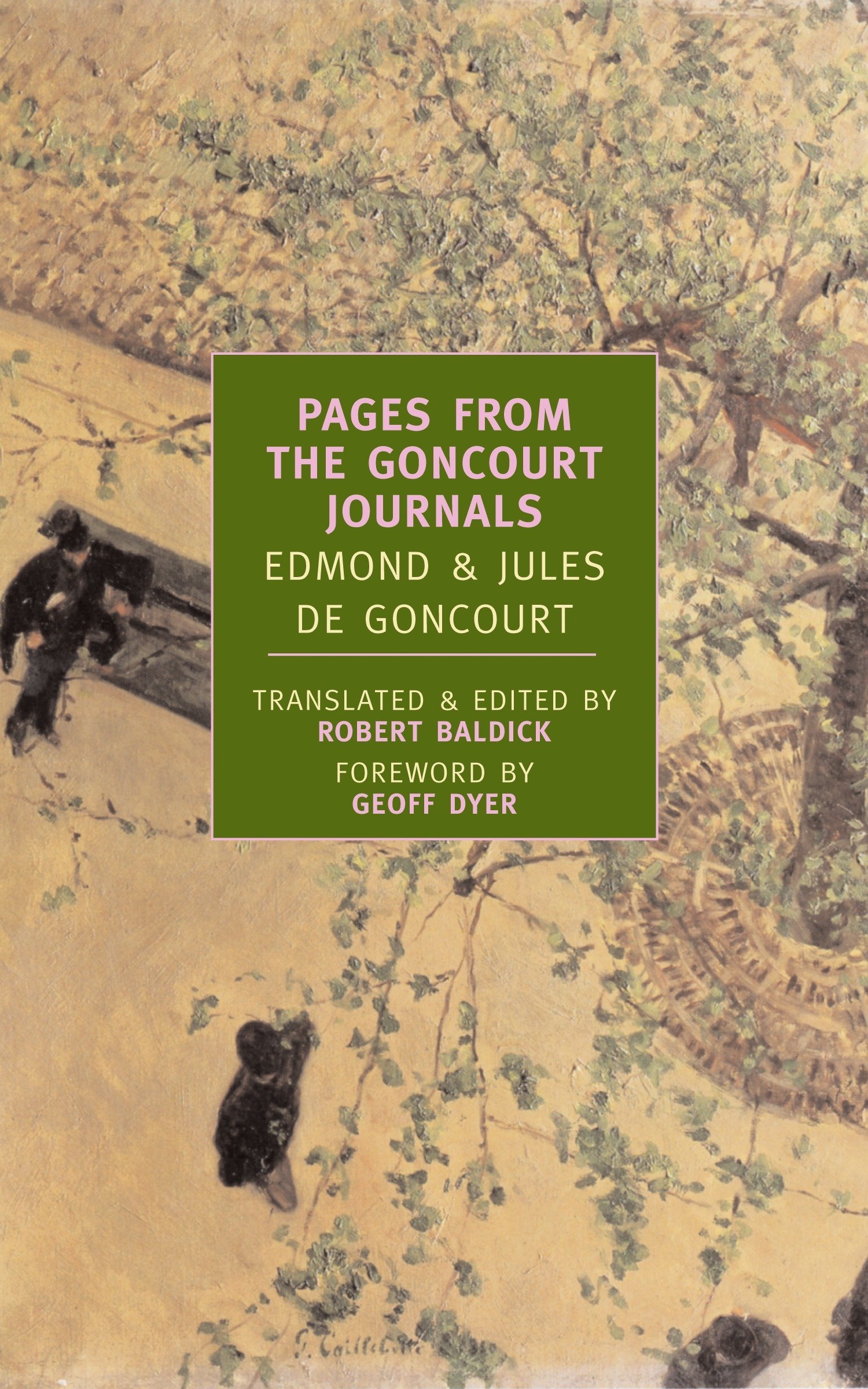

Gérard Genette, "Paul Valéry Literature as Such"
Theodor Adorno, "The Valery Proust Museum"
Selections rom the website "Proust Criticism in English":
Adorno, Theodor W. "On Proust." Notes to Literature, edited by Rolf Tiedemann, translated by S.W. Nicholsen, vol. 2, Columbia University Press, 1991, pp. 312-317.
Adorno, Theodor W. "Short Commentaries on Proust." Notes to Literature, edited by Rolf Tiedemann, translated by S.W.
Barthes, Roland. "Proust and Names." New Critical Essays, translated by Richard Howard, Hill and Wang, 1980, pp. 55-68.
Barthes, Roland. "Longtemps, je me suis couché de bonne heure." The Rustle of Language, translated by Richard Howard, Hill and Wang, 1986, pp. 277-290. In English.
Barthes, Roland et al. "Proust Round Table." Gilles Deleuze, Two Regimes of Madness: Texts and Interviews 1975-1995, translated by G. Lapoujade, Semiotext(e), 2007, pp. 29-60.
Bataille, Georges. "Proust." Literature and Evil, translated by Alastair Hamilton, Marion Boyars, 1985, pp. 133-147.
?Benjamin, Walter. "The Image of Proust." Illuminations, edited by Hannah Arendt, translated by Harry Zohn, Schocken Books, 2007, pp. 201-215. ?
Benjamin, Walter. "On some motifs in Baudelaire." Illuminations, edited by Hannah Arendt, translated by Harry Zohn, Schocken Books, 2007, pp. 155-200.
Incompletion." Aspects of Narrative: Selected Papers from the English Institute, edited by J. Hillis Miller, Columbia University Press, 1971, pp. 119-142.
Bersani, Leo. "'The Culture of Redemption': Marcel Proust and Melanie Klein." Critical Inquiry, vol. 12, no. 2, 1986, pp. 399-421.
Blanchot, Maurice. "The Experience of Proust." The Book to Come, edited by Charlotte Mandell, Stanford University Press, 2003, pp. 11-24.
Blanchot, Maurice. "The Experience of Proust." Faux Pas, translated by Charlotte Mandell, Stanford University Press, 2001, pp. 42-46.
Genette, Gérard. "Time and Narrative in A la Recherche du temps perdu." Aspects of Narrative: Selected Papers from the English Institute, edited by J. Hillis Miller, Columbia University Press, 1971, pp. 93-118.
Gérard Genette, “Metonymy in Proust,” Swann's Way (Susanna Lee, Ed. Norton Critical Editions, 2013)
Hill, Leslie. "Proust and the Art of Reading." Comparative Criticism: A Yearbook, edited by Elinor Shaffer, Cambridge University Press, 1980, pp. 167-185.
Lévinas, Emmanuel. "The Other in Proust." Proper Names, Stanford University Press, 1996, pp. 99-105.
Rivière, Jacques. "Marcel Proust and the Classical Tradition." Critical Essays on Marcel Proust, edited by Barbara J. Bucknall, G.K. Hall & Co., 1987, pp. 25-29.
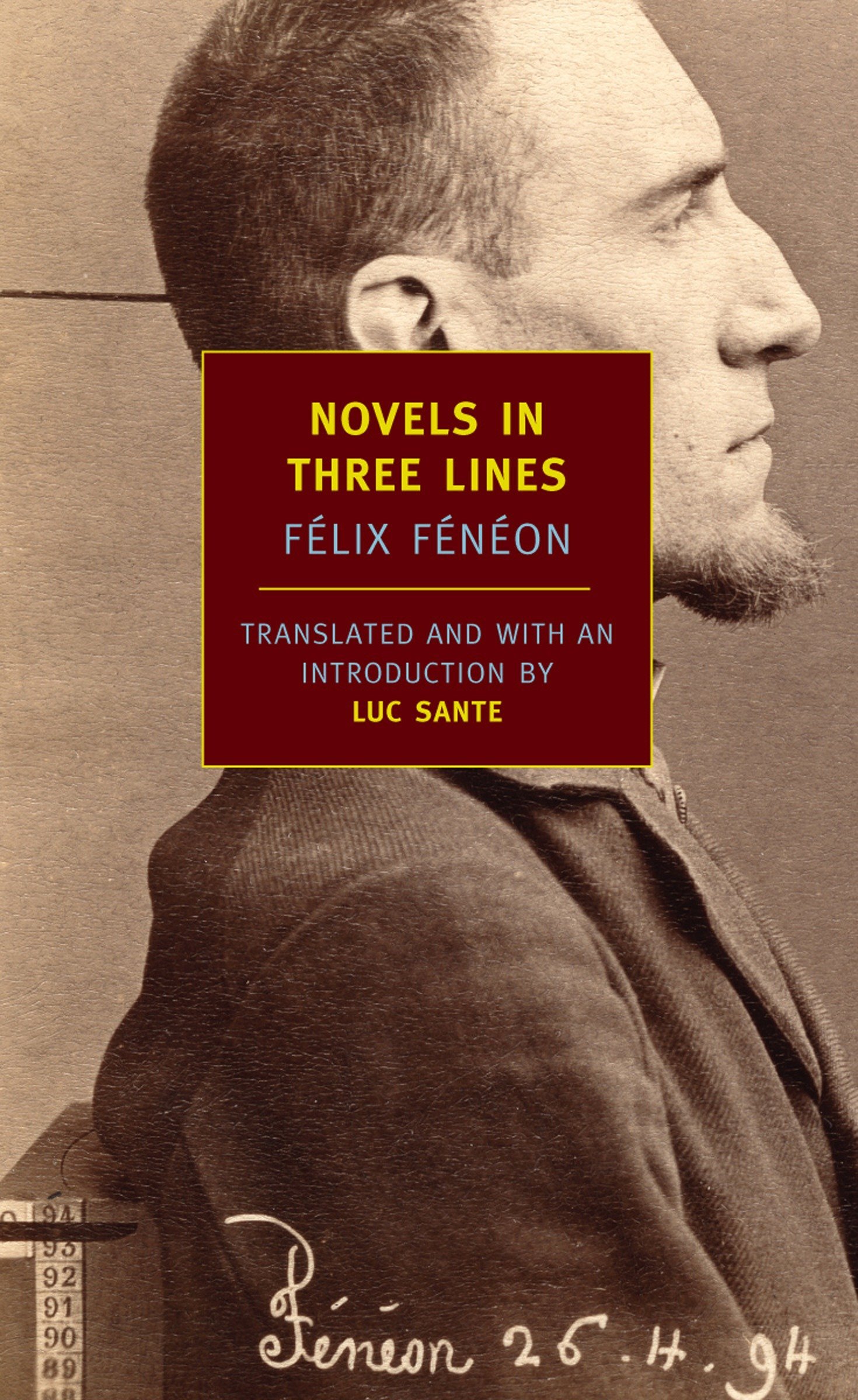
Félix Fénéon, Novels in Three Lines (New York Review Books Classics, 2007)
Athough Gide offers no further explicative commentary on his trébuchement, immediate distaste for Proust’s sentence is typically interpreted as the result of a misreading. The biographer George D. Painter has explained that Gide was “shocked” by what he wrongly considered to be an improper use of language-“a solecism about ‘the vertebrae in her forehead”’- whereas Proust’s use of the word vertebrae was simply a “metonymy” meant to suggest that the ossature of Tante Léonie’s forehead resembled vertebrae. Proust‘s Pléiade editors give a philological gloss on Gide’s putative misreading: It was an incoherency in the typescript that led Gide to believe that the image of vertebrae referred to Tante Léonie’s forehead (rather than to the “armature” of her wig, as it was meant to do).’
--Christine M. Cano, "Mea Culpa: Gide, Proust, and the Nouvelle Revue Française"
OLIVER MUNDAY, "How I Came to Love My Epic Quarantine Reading Project Tackling Proust"
NOVEMBER 1, 2020
The Thrill of Proust's Handwriting | The New Yorker Apr 2, 2013
André Aciman, "Far from Proust’s Way" The New York Review of Books December 15, 2005
André Aciman, "Proust’s Way?" The New York Review of Books December 1, 2005
Lydia Davis, Marcel Muller, Christopher Prendergast, and Jan van Rij, reply by André Aciman, 'Proust's Way?'/ An Exchange | The New York Review of Books April 6, 2006
Roger Shattuck | Proust and the Will | The New York Review of Books 1974
Roger Shattuck | "Kilmartin's Way" | The New York Review of Books
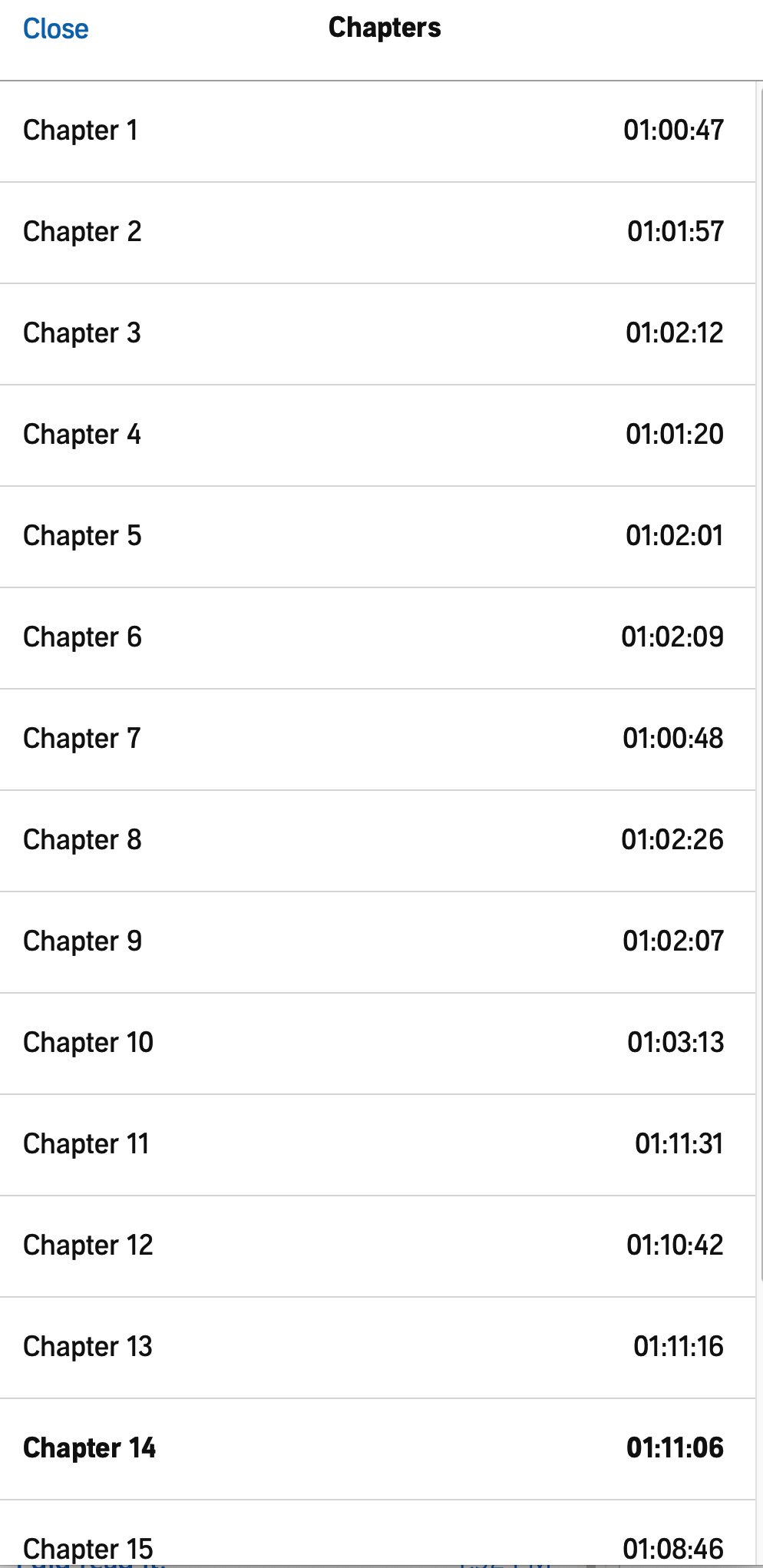
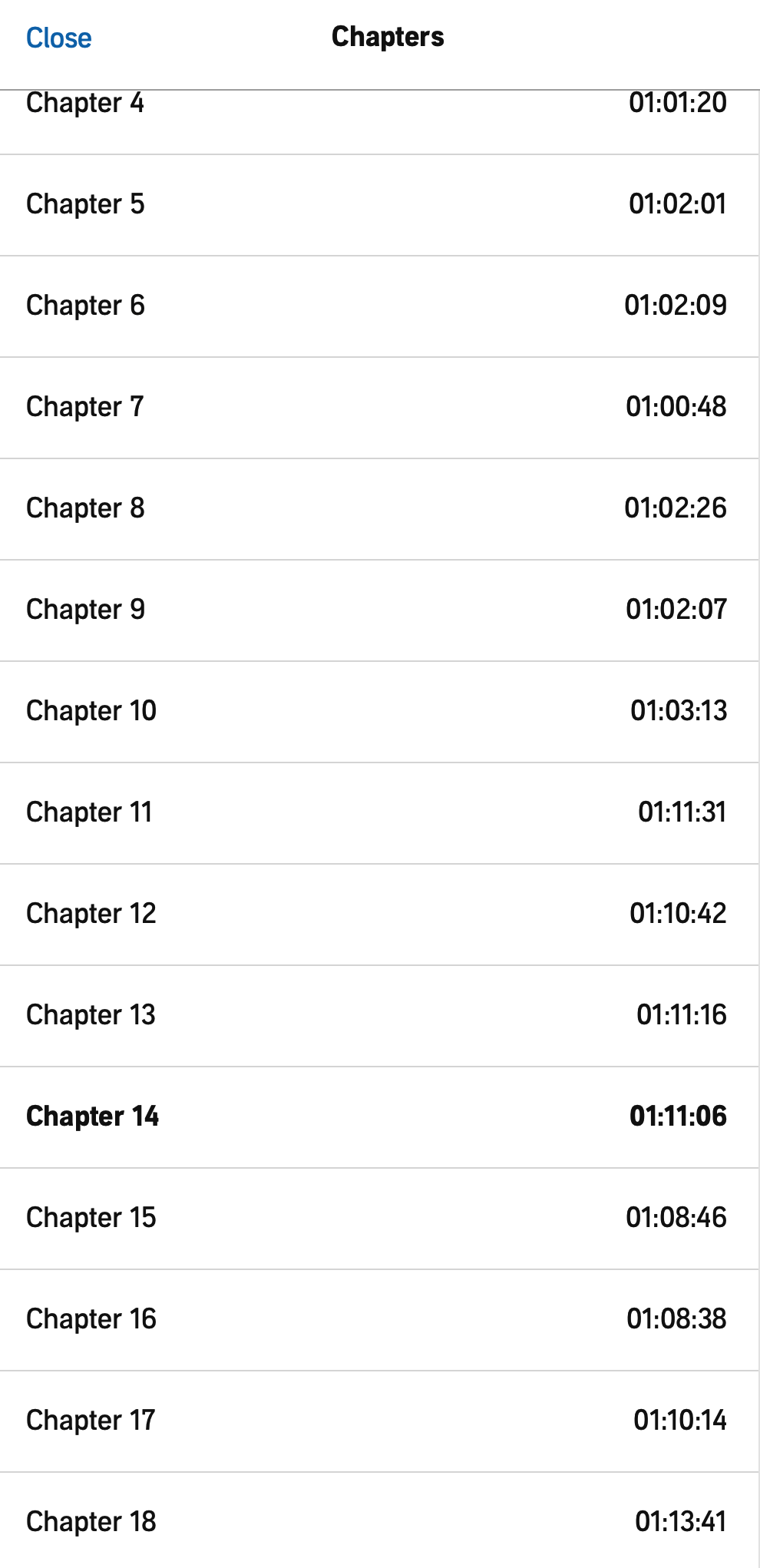
The music on this recording is taken from the NAXOS catalogue: CHABRIER PIANO WORKS, VOL. 1 Georges Rabol, piano
FAURé NOCTURNES NOS. 1–6
Jean Martin, piano
FAURé NOCTURNES NOS.7–13 / PRELUDES, OP.103/ ROMANCES, OP.17
Jean Martin, piano
FAURé PIANO MUSIC FOR FOUR HANDS
Pierre-Alain Volondat, piano; Patrick de Hooge, piano
DAVID PIANO TRIOS NOS. 2 AND 3
Eszter Perenyi, violin; Ilona Prunyi, piano; Tibor Parkanyi, cello
DEBUSSY ARRANGEMENTS FOR 2 PIANOS
Daniel Blumenthal, piano; Robert Groslot, piano
D’INDY PIANO TRIO AND QUINTET / STRING QUARTET NO. 3
Ilona Prunyi, piano; New Budapest Quartet
GRIEG PIANO TRANSCRIPTIONS OF SONGS, OP. 41 / NORDIC MELODIES, OP. 63
Einar Steen-Noleberg, piano
BOELLMANN PIANO QUARTET / PIANO TRIO
Bela Banfalvi, violin; Karoly Botvay, cello; Janos Fehervari, viola; Ilona Prunyi, piano
BRETON PIANO TRIO IN E MAJOR / STRING QUARTET IN D MAJOR
New Budapest Quartet
CIURLIONIS PIANO WORKS, VOL. 1
Muza Rubackyte, piano
CIURLIONIS PIANO WORKS, VOL. 2
Muza Rubackyte, piano
PIERNé FLUTE SONATA / PIANO TRIO
Istvan Matuz, flute; Bela Banfalvi, violin; Norbert Szelecsenyi, piano; Katalin Vass, cello
SINDING PIANO TRIOS NOS. 2 AND 3
Andras Kiss, violin; Tamas Koo, cello; Ilona Prunyi, piano
BORODIN PIANO QUINTET / STRING QUINTET Otto Kertesz, cello; New Budapest Quartet
Music programming by Mike Shah


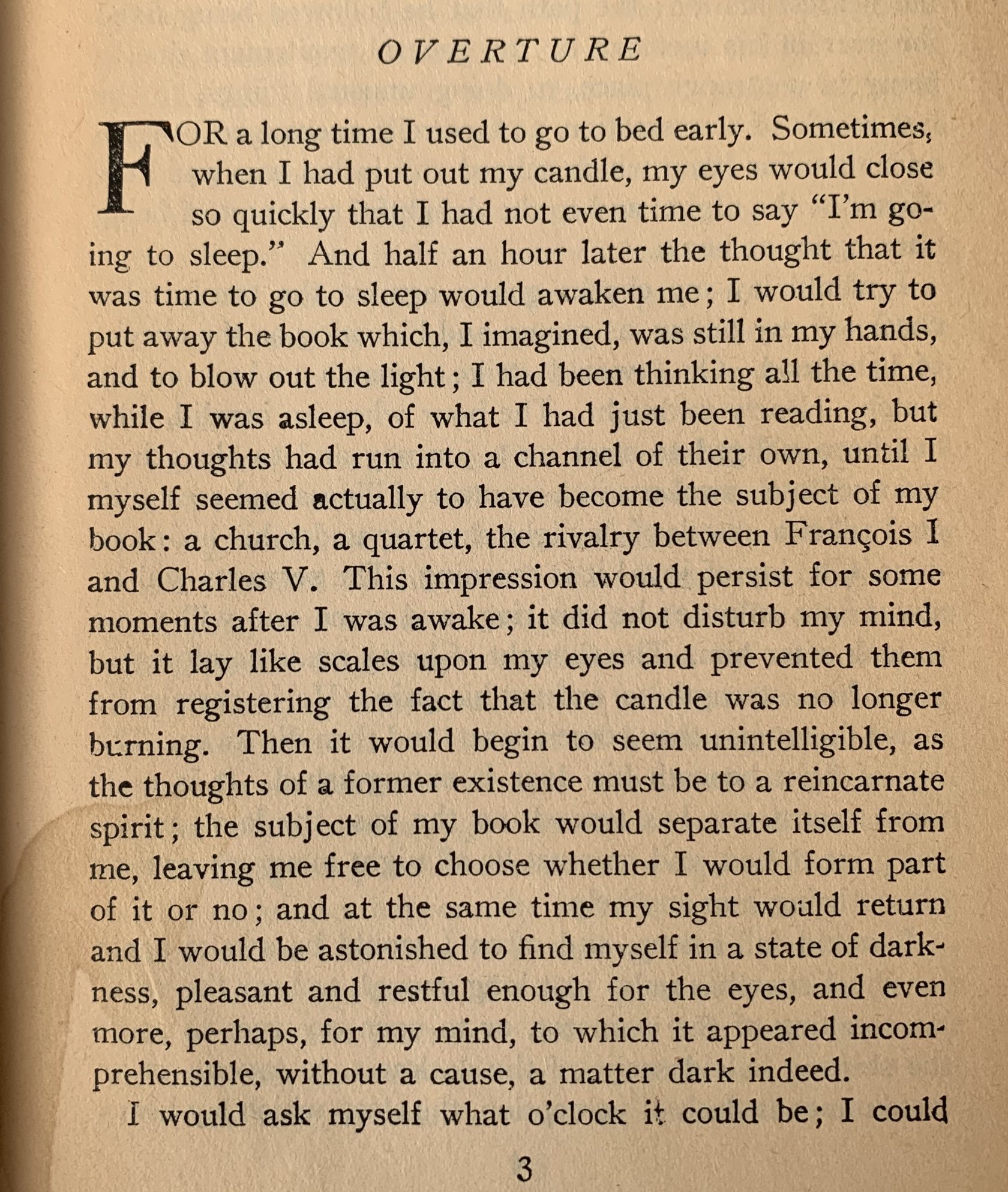
Schubert: Piano Sonata No.20 in A, D.959 - 2. Andantino
I will respond within twenty-four hours or less. Email all work for the course to me at [email protected]
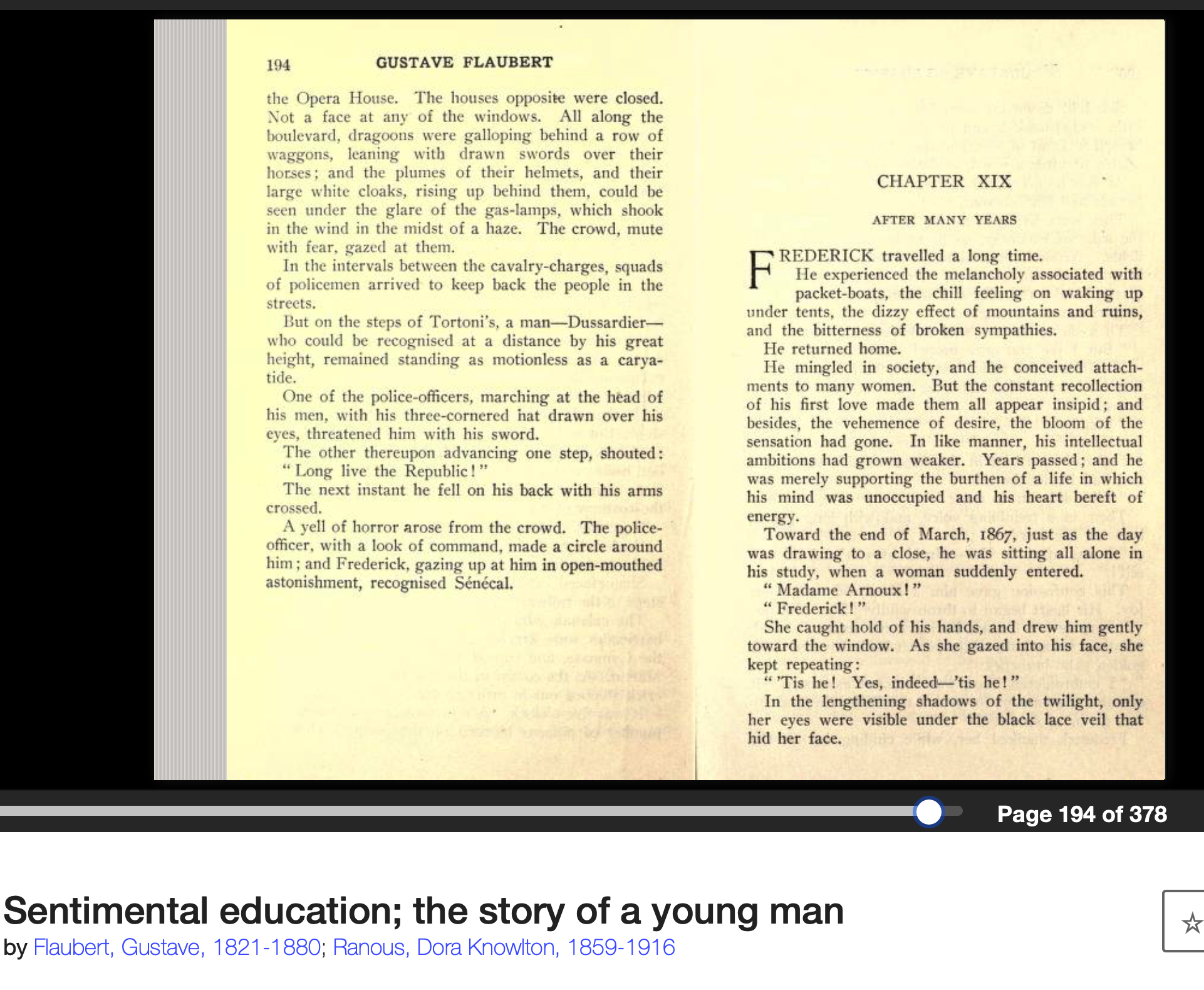
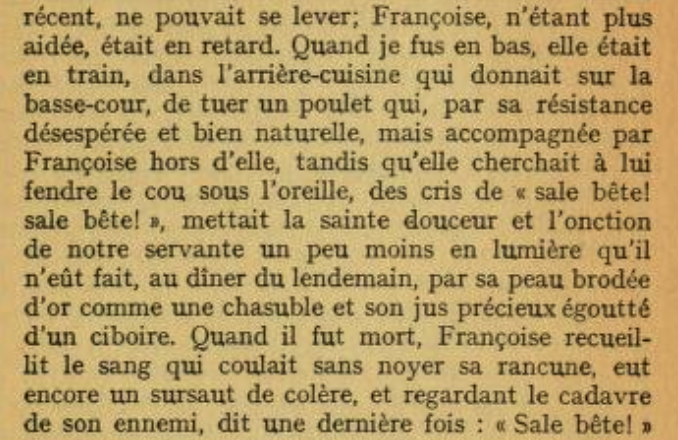
À la recherche du temps perdu (1919) p. 167
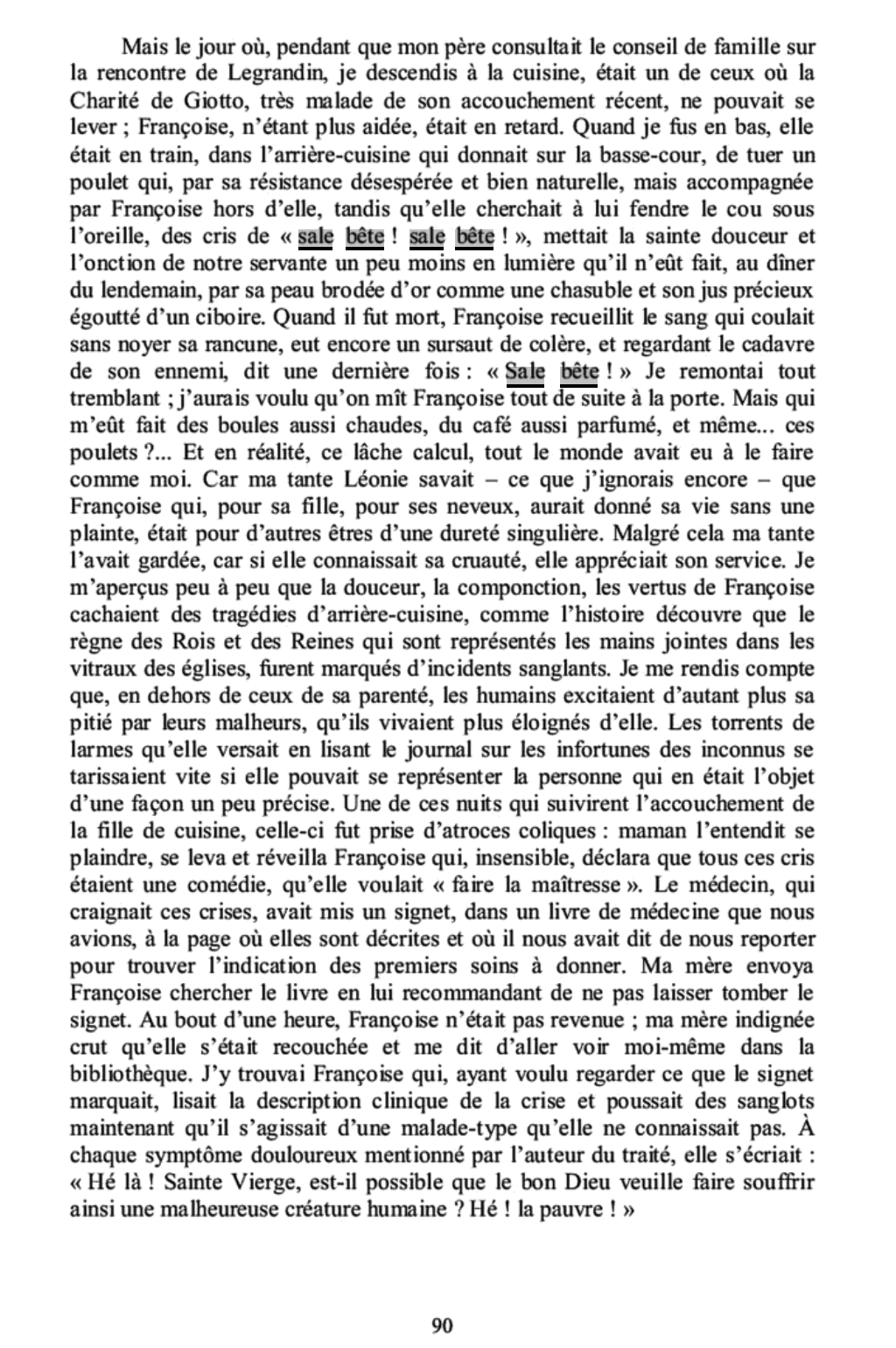

Proust does something similar when the narrator compares Swann's search for Odette in hotels in Chatou to his search for her in bars in Paris after he arrives very late at the Verdurins and discovers she has already left.
Is Proust not trusting his reader's reading memory? If the reader doesn't make the connection, with the narrator revive his memory? Will the remember? If so, will the reader be able to find the earlier passage?
At the Criterion Channel, all women filmmakers are “feminist,” “subversive,” and “radically progressive.”
"I would be glad enough if the book simply served to make people want to read Richardson and argue with my case."
Terry Eagleton, The Rape of Clarissa (1982), viii ("progressive?" [yes]; "feminist"; "genuinely subversive elements")
"We readers of Madame Bovary in English know that we’ll never hear in our own ears the niceties of pitch, tone, inflection, and nuance in Flaubert’s infinitely supple narrative voice as we can hear them in, say, Jane Austen’s. We also know that no novelist has placed so much stress on these qualities as Flaubert, whose painstakingly constructed sentences are as much the “subject” of the novel as Emma herself. In addition, we’re aware that Flaubert works like a collagist, building an utterly original and perfectly proportioned composition out of worn scraps of language—a language we cannot properly read."
--Jonathan Raban, "Flaubert, Imperfect" NYRB October 14, 2010
Martin Herbert, Tell Them I Said No (Sternberg Press, 2016),
goodbye-to-all-that-why-do-artists-reject-the-art-world/
Denunication is not criticism. It is not even thought. It's the herd mentality. You don't have to college to become a keyboard social justice warrior fighting for representation. "Representation" is a bourgeois mirage, an empty-headed concept that has nothing to do with political representation. If no one ever used a racial slur or just plain mean word again, the country would be more uahtoritatrian thanks to authoritarian speech police you, not any less racist. If more films are directed by "members" of "oppressed groups" and more people were to watch a film because it was made by a member of an oppressed group, not because it was good, nothing about the country related to health care, minimum wage, equal pay by gender, mass incaeration, the war on drugs, police militarization, and so on, would have changed. You might be able to get a job at the CIA, however.
WOKE CIA recruitment ads (May 2021)
Human rights violations by the CIA
They Live see through glasses scene
Slavoj Zizek on "They Live" (The Pervert's Guide to Ideology)
Vance Packard, Hidden Persuaders
100 Examples of Pareidolia - Seeing Faces in Everyday Objects
The Art of Analogy:
The last shot of North by Northwest (dir. Alfred Hitchcock, 1959), a train entertaining a tunnel Timestamp 1:58
Electric flash at the end of a sex scene montage on a subway late at night in Risky Business (dir. Paul Brickman, 1983)
Version and Variation:
Alas poor Yorick variations in versions of a film with the same title, namely, Hamlet.
Here are two different versions of the same scene from two versions of the same film, namely, The Maltese Falcon. Which one is better? There is only one answer.
Aesthetic Judgment:
"Insofar as the technique and the product lead us to dismiss the losers in the rankings, we are obviously using them to blind ourselves to the future possibilities of those losers and to the fact that hierarchies seldom remain un changed. In the other direction, however, I find it hard to imagine that many of the things that we care about-loving someone as opposed to some other one, preferring this critic to that, even choosing to read this book rather than that-would be possible without comparison. For it is hard to imagine judgments without comparison, as John Barrell suggested when he maintained that Western society since the eighteenth century had made evaluation-the perception of the value of this as opposed to that-the most common of common activities."
--Frances Ferguson
Repetition, AND the LIMITS of RESEMBLANCE: Imitation; Counterfeit; Homage; Caricature Parody; Satire
Conventions and Creativity
Two examples of the same convention--the Hollywood Montage--from two seasons of the same show. Which one is better? There is only one answer.
Montage
Mindhunter Season 1 Episode (dir. David Fincher, 2017)
vs.
Mindhunter Season 2 Episode 8 (dir. Carl Franklin, 2019) Time stamp 37:35
Shot Reverse Shot
One long take of two characters talking to each other framed by standard shot reverse shot intro and exits:
Amazon Prime Patriot 1, Season 8 Episode
Synthesis and Sound Design
Mindhunter (2017; 2019)
Direct Knowledge (Information; Myth; Consensus) vs. Oblique Knowledge ([Deniable] Dissensus; Analogy; Philosophy and Literature)
“A good reader, a major reader, an active and creative reader is a rereader.”
--Vladimir Nabokov
"Happiness has no story."
--Jules Barbey d'Aubervilly
Werner Herzog - Doc / Fest 2019
Neil Young Reveals the Secrets to Hit Records
Flora Cash For Someone - [Official Music Video]
Reading Won't Make You a Better Person
A Classic, You Have to Repeat to Understand time stamp around 23:00
Flora Cash For Someone - [Official Music Video]
Hiroshi Yoshimura – Music For Nine Post Cards (Wave Notation 1) [1982, full album]
La Pléiade: du courant littéraire à la prestigieuse bibliothèque
Robert Darnton, "What Is the History of Books?," Daedalus Vol. 111, No. 3, Representations and Realities (Summer, 1982), pp. 65-83
Robert Darnton, The Case for Books: Past, Present, and Future (2009)
Robert Darnton, "In Defense of the New York Public Library," June 7, 2102
Keith Richards: "There's Two Sides to Every Story" (Part 1)
Keith Richards: "There's Two Sides to Every Story" (Part 2)
Talking of Hitchcock in the spaced-out fourth chapter, where the froth of film and music clips has largely subsided, Mr. Godard says ''we've forgotten why Joan Fontaine leans over the edge of the cliff and what it was that Joel McCrea was going to do in Holland,'' and so on, ''but we remember a handbag, but we remember a bus in the desert, but we remember a glass of milk.''
Turner, "Hannibal Crossing the Alps"
Loop Narrative / Thematic Structure (Visualizing, Spatializing works of art that can only be experienced in time excperienced as a succession of moments.)
Ludovico Einaudi, "Elegy for the Artic" (ends one note short of beginning over)
James Joyce, Finnegans Wake
The Searchers (dir. John Ford, 1956) doorway shots opening and closing
All the President's Men, from typewriter to teletype
Invaders from Mars (film begins over at the end)
Invasion Of The Body Snatchers (1956) - Trailer
Zodiac (dir. David Fincher) sound montage
Mr. Robot Season 2, Episode 6 m4ster-s1ave.aes (sit-com episode)
Classical music in contemporary films. See Liam Niesen dropped off at the train station in The Commuter (dir.
Jaume Collet-Serra, 2018)
Second movement of Beethoven's Ninth in the opening title sequence to Ready or Not (dir.
Matt Bettinelli-OlpinTyler Gillett, 2019) and Tchaikovsky's Overture of 1812 in the butler driving the car sequence.
Kevin Baker, "The Deep State of Dementia" From the September 2019 issue pdf
"Well, first of all, they're all psychopaths."
Mindhunter Season 1, Episode 3 (2017) Timestamp 4:42
Abridge the description below: Cut it down from 468 words to less than forty words:
Herman Melville, Chapter 42 "The Whiteness of the Whale," in Moby Dick.
Though in many natural objects, whiteness refiningly enhances beauty, as if imparting some special virtue of its own, as in marbles, japonicas, and pearls; and though various nations have in some way recognised a certain royal preeminence in this hue; even the barbaric, grand old kings of Pegu placing the title “Lord of the White Elephants” above all their other magniloquent ascriptions of dominion; and the modern kings of Siam unfurling the same snow-white quadruped in the royal standard; and the Hanoverian flag bearing the one figure of a snow-white charger; and the great Austrian Empire, Caesarian, heir to overlording Rome, having for the imperial color the same imperial hue; and though this pre-eminence in it applies to the human race itself, giving the white man ideal mastership over every dusky tribe; and though, besides, all this, whiteness has been even made significant of gladness, for among the Romans a white stone marked a joyful day; and though in other mortal sympathies and symbolizings, this same hue is made the emblem of many touching, noble things- the innocence of brides, the benignity of age; though among the Red Men of America the giving of the white belt of wampum was the deepest pledge of honor; though in many climes, whiteness typifies the majesty of Justice in the ermine of the Judge, and contributes to the daily state of kings and queens drawn by milk-white steeds; though even in the higher mysteries of the most august religions it has been made the symbol of the divine spotlessness and power; by the Persian fire worshippers, the white forked flame being held the holiest on the altar; and in the Greek mythologies, Great Jove himself being made incarnate in a snow-white bull; and though to the noble Iroquois, the midwinter sacrifice of the sacred White Dog was by far the holiest festival of their theology, that spotless, faithful creature being held the purest envoy they could send to the Great Spirit with the annual tidings of their own fidelity; and though directly from the Latin word for white, all Christian priests derive the name of one part of their sacred vesture, the alb or tunic, worn beneath the cassock; and though among the holy pomps of the Romish faith, white is specially employed in the celebration of the Passion of our Lord; though in the Vision of St. John, white robes are given to the redeemed, and the four-and-twenty elders stand clothed in white before the great-white throne, and the Holy One that sitteth there white like wool; yet for all these accumulated associations, with whatever is sweet, and honorable, and sublime, there yet lurks an elusive something in the innermost idea of this hue, which strikes more of panic to the soul than that redness which affrights in blood.
To deal with the horrific events in some of the literature we will read, we will think about trauma in two ways, first as unspeakable and second as a story. Literature can be thought of as a therapeutic resource but not as a solution. It just raises questions.
Changing the Paradigm 2015 Developmental Trauma Panel | Dr. Bessel van der Kolk
A sad outcome:
Btw, don't even think of going to graduate school to get a Ph.D in English--or any other kind of--literature.
Stephen Marche, a survivor of academia, returns to a troubled field"
September Derrida, "Before the Law" in Jacques Derrida (Author), Sandra Van Reenen (Translator) Before the Law: The Complete Text of Préjugés
September Derrida Versions of Derrida's essay / book referenced in Jacques Derrida (Author), Sandra Van Reenen (Translator) Bef
Chomsky on the Watergate scandal and COINTELPRO
"Bring me the Steak Au Poivre" --Orson Welles
"I'm Not Crazy!" Mental Illness on Film (2017)
"The Sceptics, the only honourable type of respect among the ever-so multiply ambiguous tribe of the philosophers!"
--Nietzsche, Ecce Homo: How One Becomes What One Is
The one thing which we seek with insatiable desire is to forget ourselves, to be surprised out of our propriety, to lose our sempiternal memory and to do something without knowing how or why; in short to draw a new circle. Nothing great was ever achieved without enthusiasm. The way of life is wonderful; it is by abandonment. The great moments of history are the facilities of performance through the strength of ideas, as the works of genius and religion. "A man," said Oliver Cromwell, "never rises so high as when he knows not whither he is going." Dreams and drunkenness, the use of opium and alcohol are the semblance and counterfeit of this oracular genius, and hence their dangerous attraction for men. For the like reason they ask the aid of wild passions, as in gaming and war, to ape in some manner these flames and generosities of the heart.
--Ralph Waldo Emerson, Essays, First Series
News on the March (formerly known as "Outburts") Could compare the Russian DVD set to the Criterion Collection edition (2019) blu-ray
Volume 82, 2019/2
Judgment at risk
Cleanth Brooks, "The Heresy of Paraphrase," in The Well Wrought Urn (1947)
To understand how I have planned this course, please be sure to look at John Law, After Method: Mess in Social Science Research Routledge, 2004
PK Feyerabend, Against Method: Outline of an Anarchistic Theory of Knowledge (1975)
Hans-Jörg Rheinberger, "Scrips and Scribbles," MLN, Vol. 118, No. 3, German Issue (Apr., 2003), pp. 622-636.
Russell L. Ackoff, The Art and Science of Mess Management "Interfaces, Vol. 11, No. 1 (Feb., 1981), pp. 20-26
He would enter the drawing-room; and there, while Mme. Verdurin, pointing to the roses which he had sent her that morning, said: “I am furious with you!” and sent him to the place kept for him, by the side of Odette, the pianist would play to them — for their two selves, and for no one else — that little phrase by Vinteuil which was, so to speak, the national anthem of their love. He began, always, with a sustained tremolo from the violin part, which, for several bars, was unaccompanied, and filled all the foreground; until suddenly it seemed to be drawn aside, and — just as in those interiors by Pieter de Hooch, where the subject is set back a long way through the narrow framework of a half-opened door — infinitely remote, in colour quite different, velvety with the radiance of some intervening light, the little phrase appeared, dancing, pastoral, interpolated, episodic, belonging to another world. It passed, with simple and immortal movements, scattering on every side the bounties of its grace, smiling ineffably still; but Swann thought that he could now discern in it some disenchantment. It seemed to be aware how vain, how hollow was the happiness to which it shewed the way. In its airy grace there was, indeed, something definitely achieved, and complete in itself, like the mood of philosophic detachment which follows an outburst of vain regret. But little did that matter to him; he looked upon the sonata less in its own light — as what it might express, had, in fact, expressed to a certain musician, ignorant that any Swann or Odette, anywhere in the world, existed, when he composed it, and would express to all those who should hear it played in centuries to come — than as a pledge, a token of his love, which made even the Verdurins and their little pianist think of Odette and, at the same time, of himself — which bound her to him by a lasting tie; and at that point he had (whimsically entreated by Odette) abandoned the idea of getting some ‘professional’ to play over to him the whole sonata, of which he still knew no more than this one passage. “Why do you want the rest?” she had asked him. “Our little bit; that’s all we need.” He went farther; agonised by the reflection, at the moment when it passed by him, so near and yet so infinitely remote, that, while it was addressed to their ears, it knew them not, he would regret, almost, that it had a meaning of its own, an intrinsic and unalterable beauty, foreign to themselves, just as in the jewels given to us, or even in the letters written to us by a woman with whom we are in love, we find fault with the ‘water’ of a stone, or with the words of a sentence because they are not fashioned exclusively from the spirit of a fleeting intimacy and of a ‘lass unparalleled.’